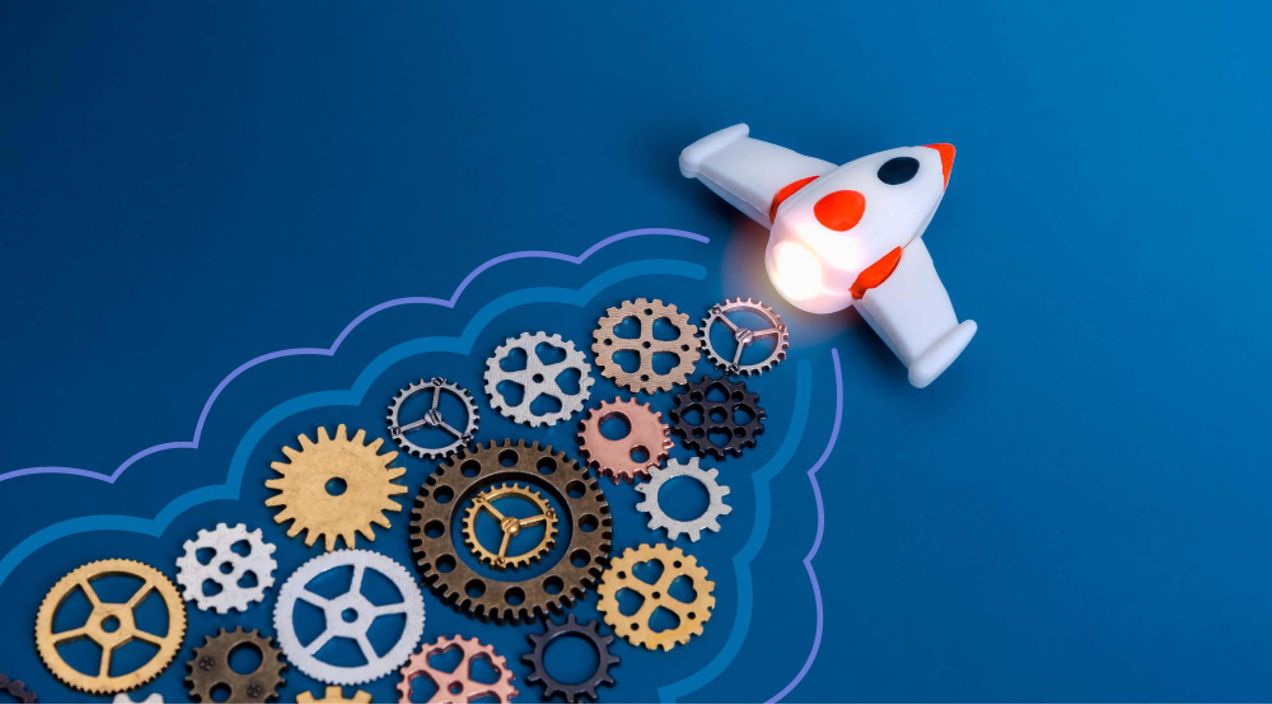Employee Development
Employee development plan template: How to help your team grow with clarity in 2026
An employee development plan template is a structured roadmap that outlines goals, skills, and actions to help employees grow, align with business objectives, and advance their careers.
Employee incentive programs: 55+ Examples to improve workplace satisfaction in 2025
Employee incentive programs are structured plans designed to encourage and reward employees for achieving specific performance goals and contributing to the overall success of an organization. These programs aim to motivate employees by recognizing and compensating them for their hard work.
Succession planning definition: What it is, why it matters, and how to get it right
Succession planning is the process of identifying and developing employees within your organization to fill key roles as they become vacant in the future. It’s not just about replacing top executives when they leave—it’s about ensuring continuity at every critical level of your business.
Team goals that shape culture: Align your people around purpose and performance
Team goals are the shared targets or outcomes a group of employees commits to achieving together. Unlike individual goals, which focus on personal milestones, team goals unite everyone around a common purpose. At their core, team goals serve as a collective agreement on what matters and why.
Internal recruitment: The smart HR strategy for retention, growth, and culture
Internal recruitment is the process of filling open positions within your company using existing employees, rather than sourcing talent from outside. It could mean promoting someone, transferring them to a new department, or even offering lateral moves that open doors to fresh opportunities.
Job rotation strategies to improve development, engagement, and retention
Discover how job rotation drives employee development, boosts engagement, and reduces employee turnover. Explore benefits, challenges, best practices, DEI considerations, and strategies HR can use to implement job rotation programs that create a flexible workforce and strengthen business operations.
What is talent development: Top strategies and examples to empower your employees
Talent development is a strategic approach to enhancing the skills, knowledge, and capabilities of employees within an organization. It goes beyond traditional training programs by focusing on continuous learning and personal growth.
15+ Development areas for managers to build strong leaders for your organization
Discover the essential leadership development areas that help managers grow and inspire their teams. From fostering emotional intelligence to mastering time management, these strategies enable managers to lead effectively, driving both personal and team success.
15+ Career development programs that help employees climb the ladder
Career development programs are essential for employee growth and organizational success. From mentorship and skill development to clear growth paths, these programs engage employees and cultivate future leaders. Investing in career growth fosters loyalty, productivity, and long-term success.
Staff development survey: How to measure & improve employee growth effectively in 2025
A staff development survey is essential for measuring employee growth and creating career development opportunities. Discover how to design, implement, and act on survey data to enhance engagement and improve organizational success. Get expert insights on best practices and common mistakes to avoid.
How to provide developmental feedback that inspires employee success in 2025
Developmental feedback is a type of communication that focuses on helping employees grow, improve their skills, and achieve their professional goals. Unlike evaluative feedback, which primarily measures past performance, developmental feedback looks forward while encouraging self-reflection.
20+ Proven strategies for empowering teams in the workplace
An empowered team is a group of individuals who are trusted with autonomy, equipped with the resources they need, and encouraged to make decisions that align with organizational goals. Unlike micromanaged teams, empowered teams operate with a sense of ownership and accountability.
The role of an employee empowerment program in workplace success
The employee empowerment program is a strategic initiative designed to give employees the tools, resources, and authority to decide and act that directly impact their work and the organization's success. These programs are structured to promote self-empowerment and enhance job satisfaction.
What is GROW model coaching and how to use it as a manager?
The GROW model is a structured coaching framework designed to help individuals and teams achieve their goals effectively. The acronym GROW stands for Goal, Reality, Options, and Will, each representing a critical step in the coaching process.
Personal employee goals: How to set, achieve, and benefit from them in a thriving workplace
Personal employee goals are specific, individualized objectives that employees set to enhance their professional development and contribute to their organization's success. These goals are typically aligned with both the employee’s career aspirations and the company's strategic objectives.
35+ Training survey questions to ask your employees for feedback on employee development
A training effectiveness survey at work is a structured assessment tool used to evaluate the impact and success of training programs on employees. It serves as a crucial feedback mechanism, allowing organizations to gauge how well their training initiatives align with organizational goals.
Why is employee development important now more than ever: Top strategies to try in 2024
Employee development plays a crucial role in fostering employee engagement. When employees perceive that their organization is invested in their growth, they are more likely to feel valued and appreciated. This recognition of their future creates a sense of loyalty and commitment.
What are employee skills: Strategies and top examples to empower employees in 2024
Employee skills are the specific abilities and competencies that individuals possess, enabling them to perform their job duties effectively and efficiently. These skills encompass a broad spectrum, ranging from technical proficiencies, to soft skills.
Employee growth plan: Top 10 examples that you should try in the workplace
Employee growth plans transform teams from capable to exceptional. By offering clear career paths, employees become more productive and engaged. Learn the top 10 strategies to cultivate your team's growth, from skill enhancement to continuous improvement.
What is career progression: Examples and tips to follow to create the perfect framework
Career progression refers to the strategic advancement of an individual's career path within an organization. It encompasses the planned development of skills, responsibilities, and experiences that enable employees to move forward in their professional journeys.
Employee resource groups (ERGs): Benefits and best practices that you should know
This article delves into the definition of ERGs, highlights their key benefits and outlines best practices for establishing and nurturing these groups within your organization. By leveraging ERGs, companies can create a more supportive environment, benefiting both employees and the business.
Emotional intelligence training for employees: How to implement it effectively in 2024
Emotional intelligence refers to the ability to recognize, understand, manage, and utilize emotions effectively in ourselves and others. It encompasses emotional awareness, the capacity to harness emotions and apply them to tasks like thinking and problem-solving, and the ability to manage emotions.
What are employee assistance programs: Benefits and top examples to try in 2024
Employee Assistance Programs are workplace-based intervention programs designed to help employees address personal and work issues that may affect their job performance, health, and overall well-being. EAPs are intended to provide employees with timely and accessible support.
Turning underperforming employees into rock stars with the right development strategies
Addressing underperformance is crucial for maintaining a productive workplace environment. Effective management involves pinpointing root causes, and offering necessary support. By implementing structured betterment plans, managers can help underperforming employees contribute effectively.



























